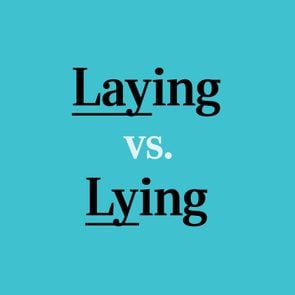“Loose” vs. “Lose”: What’s the Difference?
Updated: Apr. 12, 2023

One single letter distinguishes the commonly confused words loose vs. lose, but which should you use when?
In the word salad that is the English language, it is sometimes difficult to match the correct word to the occasion. Syntax geeks ponder inconsistencies all the time. Not only does the English language have confusing grammar rules, it also has some perplexing pronunciation—a silent “g” in sign vs. the guttural and fully pronounced “g” in signal, for instance. These quirks may explain the confusion over loose vs. lose.
Separated by one letter, loose and lose might seem related, but they are not. Other cases of misuse include envy vs. jealousy, historic vs. historical and a personal favorite, home in vs. hone in. These likely fall into the dreaded grammatical category of words you’re using wrong.
“Lose or loose” is unlike homophones that confuse people, those words that have different spellings and meanings but sound the same. Discreet vs. discrete falls into this column, with the former meaning “unobtrusive or circumspect,” and the latter indicating “separate or distinct.” So do stationary vs. stationery. Pick the latter if writing a birthday thank-you. To remember elicit vs. illicit, consider whether you want to draw a response or describe a salacious or illegal detail.
When it comes to lose vs. loose though, these words differ not only in spelling and meaning, but in pronunciation as well.
What does loose mean?
As an adjective, loose means “less restricted.” In mechanical situations, “free from attachment” can work as a meaning. For clothing, baggy would be a synonym. Use it to say “not tightly attached,” and in liquid instances, to indicate “watery.” As a verb, it means “to set free.” A few rhyming words to help with pronunciation include juice, spruce and obtuse.
Examples of loose in a sentence
- The hurricane battered the coast, causing boats to come loose from their docks.
- Sadly, the whipped cream was too loose to decorate the cake.
- My toddler set the puppy loose from its crate.
What does lose mean?
To avoid grammar mistakes that make you look bad, think about lose in terms of loss. Lose means to suffer deprivation of something. In competition, the verb is defined as “failing to get, gain or win.” It can also mean “to part with” or “cease to have or possess.” In other words, it’s a negative. With that connotation in mind, remembering to rhyme it with blues might reinforce its usage.
Examples of lose in a sentence
- If you don’t practice, you will lose the soccer match.
- I’ve been dieting for weeks to lose those last three pounds.
- In the film The Devil Wears Prada, publishing assistant Andy will lose her job if she can’t find the unpublished Harry Potter manuscript for her boss, Miranda.
Tricks for remembering loose vs. lose
Similar to these confusing pairs of words, there are tricks to choosing between loose and lose. Consider these quotes:
“If you snooze, you lose; and if you snore, you lose more,” said the late actress and sportscaster Phyllis George. It puts a fine point on the distinction. Or to paraphrase my husband: “If you’re not careful with the coins in your pocket, you could lose your loose change.”
Both quotes should help you remember when to use loose or lose. And while no one wants to play fast and loose with grammar, you certainly don’t want to lose your sense of humor either, so here are a few grammar jokes to lighten the mood.
Loose vs. lose: Test your knowledge!
Sources:
- Merriam-Webster: “Lose”
- Merriam-Webster: “Loose”



















